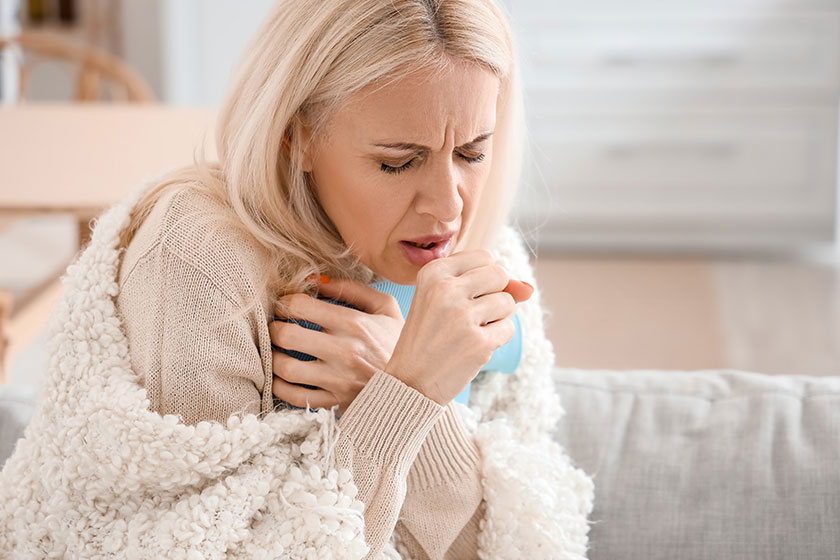Pneumonia is a serious respiratory infection that can affect individuals of any age, but the elderly are particularly vulnerable. Understanding the causes of pneumonia in your elderly loved one is crucial for prevention and effective management. In this article, we’ll explore the various factors that contribute to pneumonia in the elderly population, shedding light on common causes and risk factors.
Age-Related Changes
As people age, their immune system weakens, making them more susceptible to infections like pneumonia. Age-related changes in lung function, such as decreased cough reflex and reduced lung elasticity, can also contribute to the development of pneumonia in elderly individuals.
Underlying Health Conditions
Elderly individuals often have pre-existing health conditions that compromise their respiratory health and increase their risk of pneumonia. Conditions such as chronic obstructive pulmonary disease (COPD), heart disease, diabetes, and Alzheimer’s disease can weaken the immune system and impair lung function, making the elderly more susceptible to infections.
Weakened Immune System
The immune system plays a critical role in defending the body against infections, including pneumonia. However, as people age, their immune response may become less efficient, leading to increased susceptibility to bacterial, viral, and fungal infections. This weakened immune system can make elderly individuals more prone to developing pneumonia, especially when exposed to infectious agents.
Aspiration
Aspiration pneumonia occurs when food, saliva, or fluids are inhaled into the lungs, leading to inflammation and infection. This type of pneumonia is particularly common in elderly individuals with swallowing difficulties, such as those with dysphagia or neurological conditions like Parkinson’s disease or stroke.
Aspiration pneumonia can also occur in elderly individuals who have impaired consciousness or are bedridden, increasing the risk of aspiration.
Environmental Factors
Environmental factors, such as exposure to cigarette smoke, air pollution, or respiratory irritants, can contribute to the development of pneumonia in the elderly. Elderly individuals who live in crowded or institutional settings, such as nursing homes, may be at higher risk due to increased exposure to infectious agents and close proximity to others with respiratory infections.
Influenza and Respiratory Viruses
Infections with influenza virus and other respiratory viruses can predispose elderly individuals to secondary bacterial pneumonia. The flu season, typically occurring in the winter months, poses a significant risk to the elderly, as the influenza virus can weaken the immune system and damage the respiratory tract, making it more susceptible to bacterial infections like pneumonia.
Smoking and Alcohol Use
Smoking and excessive alcohol consumption can weaken the immune system and damage the respiratory tract, increasing the risk of pneumonia in elderly individuals. Individuals who smoke or have a history of heavy alcohol use are more likely to develop pneumonia and experience more severe complications compared to nonsmokers and moderate drinkers.
Medications and Medical Procedures
Certain medications and medical procedures can increase the risk of pneumonia in elderly individuals. For example, medications that suppress the immune system, such as corticosteroids or chemotherapy drugs, can compromise the body’s ability to fight off infections.
Additionally, invasive medical procedures, such as intubation or mechanical ventilation, can introduce bacteria into the respiratory tract, leading to pneumonia in vulnerable patients.
Malnutrition and Poor Hygiene
Malnutrition and poor hygiene can weaken the immune system and increase the risk of pneumonia in elderly individuals. Elderly individuals who are malnourished may have deficiencies in essential nutrients, such as vitamins and minerals, that are necessary for maintaining a healthy immune response.
Poor hygiene practices, such as inadequate hand washing or improper food handling, can also contribute to the spread of respiratory infections in elderly populations.
Social Isolation and Loneliness
Social isolation and loneliness have been linked to poor health outcomes, including an increased risk of pneumonia in elderly individuals. Those who lack social support may experience higher levels of stress, depression, and anxiety, which can weaken the immune system and make them more susceptible to infections.
Additionally, socially isolated individuals may have fewer opportunities for physical activity and engagement, further compromising their respiratory health.
Delayed Diagnosis and Treatment
Delayed diagnosis and treatment of respiratory infections can worsen outcomes for elderly individuals with pneumonia. They may present with atypical symptoms or may be less likely to seek medical attention promptly, leading to delays in diagnosis and treatment initiation.
Early recognition of symptoms and prompt medical intervention are essential for reducing the risk of complications and improving outcomes in elderly patients with pneumonia.
Understanding the causes of pneumonia in elderly individuals is essential for implementing preventive measures and providing appropriate care. In safeguarding your elderly loved one against pneumonia, comprehensive care is paramount.
At our community in Salisbury, NC, we prioritize the well-being of our residents by offering personalized senior living options tailored to their unique needs. Discover how we can provide the care and support your loved one deserves.







